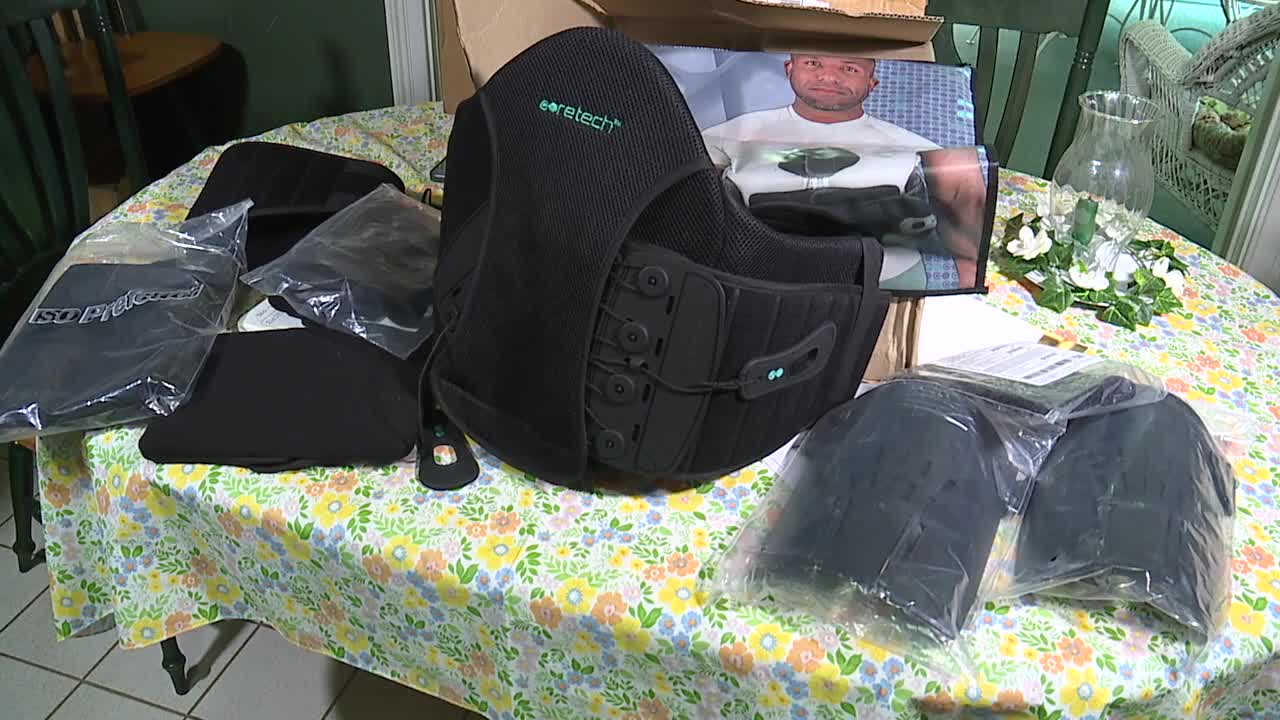PARKTON, Md. — A Parkton woman has been receiving medical braces in the mail that she never ordered, and companies have been billing her Medicare plan thousands of dollars for the unwanted equipment.
Gail Barkley has recently received braces for her knee, wrist and a large one for her back — all arriving without her requesting them or her doctor prescribing them.
"No, I don't," Barkley said when asked if she had any idea how the braces ended up at her home.
Her son Steve Barkley, who lives across the street, tried calling the companies for answers.
"Typically, there's no answer or if you leave a message, there's no call back," said Steve Barkley.
He's since learned several businesses billed Medicare for the unwanted equipment. One company charged more than $1,100 for the back brace, and Medicare paid nearly $400. Meanwhile, the same brace sells for as low as $25 on eBay.
"And that's the disturbing part - how are they getting [my mom's Medicare] information?" Barkley questioned.
WMAR-2 News Mallory Sofastaii also tried contacting the businesses. Most phone numbers led to full voicemail boxes or no response. One business did call back claiming they had a recording of Gail agreeing to a brace. They promised to send the recording, but never did.
"My mom is just very easygoing. I hate to see anybody taking advantage of her, but especially older folks and people that are just very kind and nice. I don't understand how some of these folks sleep at night," Barkley said.
Julia Schreiber, program manager for Maryland's Senior Medicare Patrol and State Health Insurance Assistance Program, said medical brace fraud is widespread.
"Durable Medical Equipment and particularly medical braces are probably one of the most common schemes that we come across," Schreiber said.

In Focus look at how Medicare scam works
The Senior Medicare Patrol is a national program in every state that helps people report Medicare fraud, errors, and abuse.
"Now it's also becoming more common where they fly more under the radar and you don't receive anything in the mail. It just shows up on your Medicare statement and there are all of these suspicious charges that you might not even be aware of if you're not checking your statements regularly," Schreiber said.
Federal investigators have uncovered a billion-dollar Medicare fraud scheme involving telemarketers billing for braces patients didn't need. And a recent federal audit found the system remains vulnerable to this fraud.
"The more that a scammer is getting out of Medicare, the higher the cost of Medicare, which is ultimately what we're all paying," Schreiber said.
Beyond wasting taxpayer dollars, Schreiber said failing to report fraudulent charges could leave beneficiaries stuck with co-insurance costs and other consequences.
"If in the future you need a medical brace, Medicare might end up denying it because they say that you already received a brace recently," Schreiber said.
The Senior Medicare Patrol advises treating your Medicare number like a credit card number — don't give it away on the phone, in-person or online unless you can verify who you're speaking with. You can report fraud to the Senior Medicare Patrol by clicking here or click here to contact your local Senior Medicare Patrol.
Schreiber also warned that scammers are calling Medicare beneficiaries offering free genetic testing. While there may not be an out-of-pocket expense, these tests aren't free — they're billed to Medicare.
To better protect yourself, the Maryland Department of Aging recommends beneficiaries:
- Keep Records: Track the dates of your health care services and save receipts and statements.
- Review Your Claims: Compare your Medicare Summary Notice (MSN) or Explanation of Benefits (EOB) with your personal records. Look for services or equipment you didn’t receive, double charges, or items your doctor didn’t order.
- Monitor Online: Log into (or create) your account at Medicare.gov to check claims anytime.
- Protect Your Number: Guard your Medicare number like a credit card. Don’t share it unless you know who you’re speaking with. Medicare will only call you in very limited situations (e.g. if you’re already in a plan, you left a message at 1-800-MEDICARE, or you filed a fraud report).
- Don’t Accept Unnecessary Care: If you feel pressured into tests, services, or equipment you don’t need, decline or get a second opinion.
- Be Skeptical: Be wary of anyone offering “free” services or equipment, or promises that sound too good to be true.
If you suspect fraud call 1-800-MEDICARE (1-800-633-4227) or Report Medicare Fraud online.
If you have a Medicare Advantage Plan or Medicare drug plan you can also call the Investigations Medicare Drug Integrity Contractor (I-MEDIC) at 1-877-7SAFERX (1-877-772-3379).
This story was reported on-air by a journalist and has been converted to this platform with the assistance of AI. Our editorial team verifies all reporting on all platforms for fairness and accuracy.




